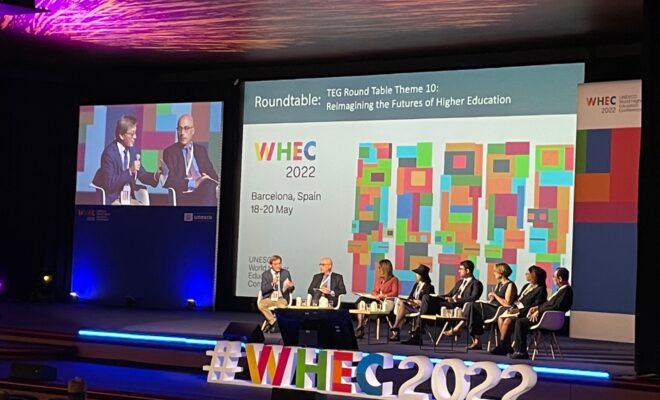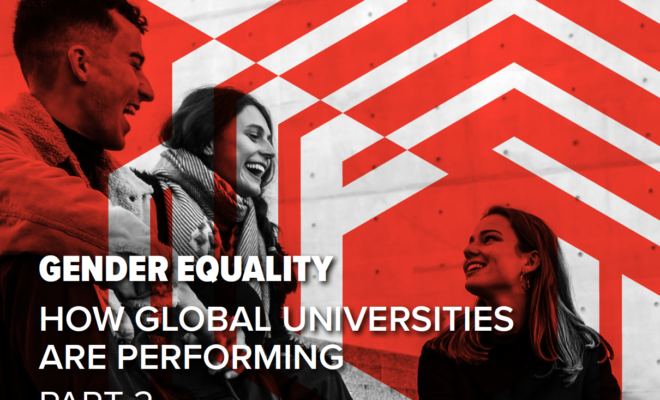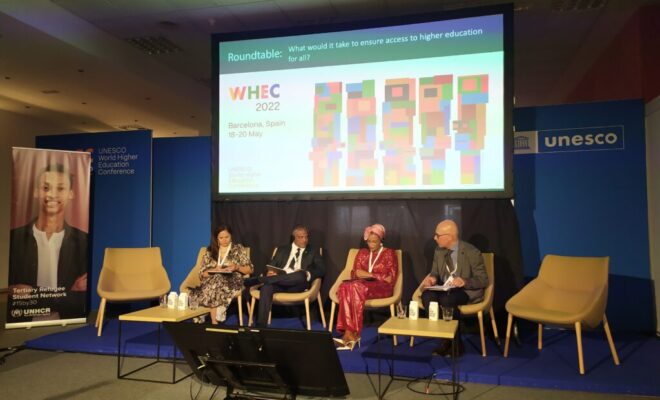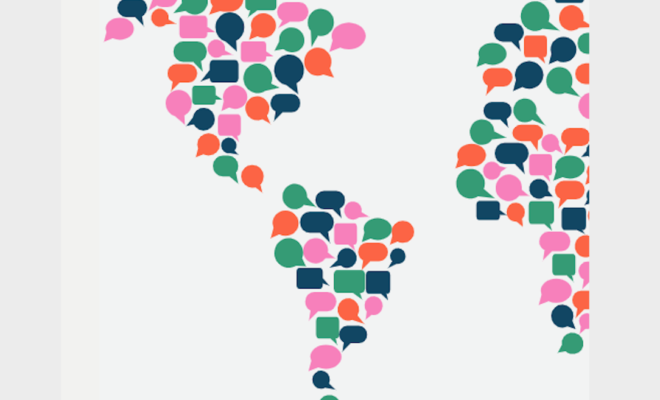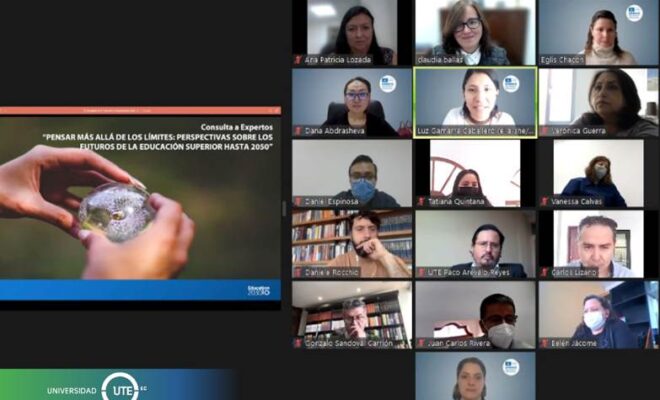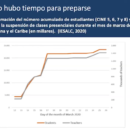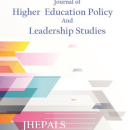Some initial steps towards a vision of tertiary education international aid


During the Third UNESCO World Higher Education Conference (WHEC), UNESCO IESALC released its inaugural report on international aid in tertiary education (TE). This report highlights the significant developments in TE aid during the past two decades and provides for the first time a holistic overview of current trends and characteristics of international aid directed to TE.
The report identifies general trends in international aid flows to TE, including the following:
- TE international aid in 2019 was US$5.3 billion, representing an increase of 9% compared to 2018.
- Just over 70% of TE international aid is awarded in the form of scholarships and students’ costs in the donor country, including the student´s living expenses.
- Only 3% of the TE international aid is directed to TVET, while the remaining 97% is directed to higher education.
- 40% of the TE international aid was channeled through governments; the same proportion also flowed through universities, colleges, or research institutes.
In general, international aid flows are highly diverse in terms of their characteristics, management, and execution, and consequently their impact on local development. There is still little specific information and discussion about the effects of TE international aid. This report opens the debate surrounding one of the most prevalent policy instruments employed by wealthy nations to cooperate with developing countries in the field of TE. This debate requires the inclusion of voices from all the actors involved in TE international aid, that is why a very dynamic roundtable took place after the report launch, highlighting the main challenges and opportunities for the future and opening the door to many more dialogues to come. Read here more details of the roundtable discussion held by UNESCO IESALC at the WHEC 2022.
In order to highlight some of the multiple actions needed among stakeholders to generate a more effective and better aid use in the future, the report includes the following high-level recommendations:
- To integrate a data-driven approach, which according to our analysis, requires improving how donor countries report information to improve the decision-making process, among other actions.
- Getting a clear understanding of the main characteristics and practices that lead to better outcomes in TE international aid. This recommendation can be achieved through the inclusion of more transparent mechanisms to evaluate the results of the different programs and initiatives.
- Articulate coordination mechanisms within a shared global agenda framework by establishing partnerships with recipient countries. To achieve greater efficiency and co-create synergies around TE, it is essential to build discussion spaces that help identify the primary needs of recipient countries.
- Adopting a strategy that targets countries with the lowest levels of development and avoiding long-term dependency. Tackling those more in need while promoting their own local development and strengthening their TE systems is a key aspect to achieve the ultimate goal of development aid.
- Exploring the feasibility of a global fund that brings together and coordinate TE international aid, similar to those applied by UNICEF or UNHCR.
These recommendations are consistent with the approach of UNESCO´s global initiative on the Futures of Education: Reimagining our Futures Together. It envisions a more collaborative international community that works together to assist governments, including state and non-state actors aligned with shared purposes, with continuous objectives aligned with the requirements of recipient countries.
For more information, please download the full UNESCO IESALC report here: https://unesdoc.unesco.org/ark:/48223/pf0000381747
And if you want to participate in this dialogue going forward, please contact Victoria Galán-Muros at v.galan@unesco.org
Image Sumanley xulx en Pixabay
RELATED ITEMS
